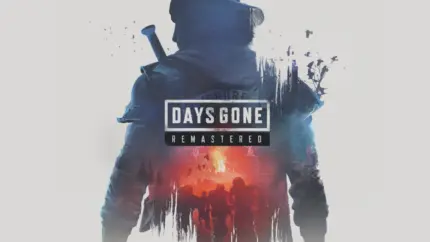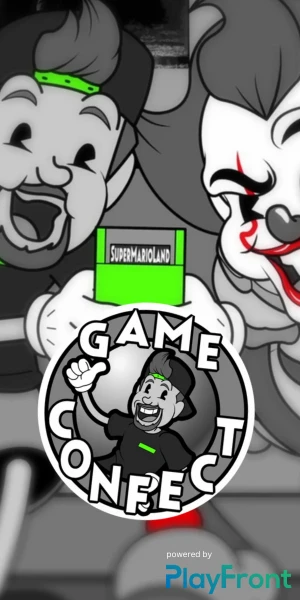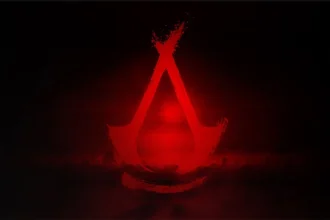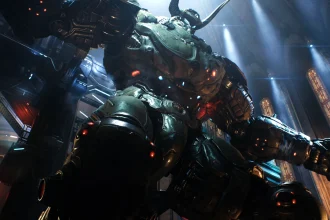Storm in a Teacup. The studio's name alone suggests that big ideas are housed in small vessels. With "Steel Seed" stays true to this motto - and fails to do so. What at first glance appears to be a cinematic action adventure with serious sci-fi drama, turns out on closer inspection to be a technically solid but completely innovation-resistant game that hides behind well-known role models instead of setting its own accents.
Welcome to the machine cellar of the future
The premise sounds exciting: humanity has wiped itself out - again - and we awaken in the role of Zoe, a woman who has become a machine, somewhere deep underground. Accompanied by the cute and annoying drone Koby (the "Comic Relief", which is never really funny), we set off in search of answers - and stumble through a world that is visually impressive but completely lifeless in terms of narrative.
The first hour of play already shows: "Steel Seed" is a remix of "Uncharted" meets "Horizon Zero Dawn" in terms of content, only without their charm, depth or courage to leave gaps. The world is gray, metallic, sterile - and not just visually. The game also remains emotionally immersive throughout. The "why" of the story is never as exciting as the "how" of its staging, which is a real problem for a narrative-driven game.

Gameplay according to a template
In terms of game mechanics, "Steel Seed" joins an ever-growing list of games that simply adopt the building blocks of modern third-person adventures: Easily recognizable climbing ledges? Check. Tubular levels with the occasional fork in the road? Of course. Combat mechanics with light and heavy attacks? Of course. All of this works - but it doesn't inspire.
The traversal, i.e. the climbing, jumping and platforming, is clearly influenced by "Uncharted". Unfortunately, Nathan Drake's lightness is missing. Zoe moves elegantly, but imprecisely. Her jumps feel like they are cast from rubber - an effect that neither suits the metallic world nor the mechanical heroine. At least the integration of Koby as a puzzle element occasionally provides some nice ideas - for example, when it comes to activating switches in a certain order or distracting enemies. But even that wears thin.
The combat is probably the biggest annoyance: Superficially in-depth - with dodge windows, combos and upgrades - but ultimately nothing more than button mashing with bonus functions. Enemies act stupidly, barely react to your own tactics, and even "stronger" machine opponents can be thrown off course by repeatedly tapping the attack button. The boss fights? Forgettable. There is no tension here, at most frustration over unfair camera angles or the umpteenth wave of enemies without any tactical challenge.
Stealth light
"Steel Seed" occasionally wants to be a stealth game, but is more reminiscent of a slimmed-down version of "Deus Ex: Human Revolution" on Valium. Zoe can hide, perform silent takedowns, use Koby as a distraction - but all of this feels like a checklist, not a game idea. Especially because you can replace stealth with blunt combat at any time. The game doesn't draw a clear line. Does it want to be a stealth game or an action fest? It tries to be both - and doesn't do justice to either.
At least there is one ray of hope: Character development is actually integrated into the gameplay in a meaningful way. Skills are not simply unlocked with points, but through small challenges that require certain skills. This forces the player to actively use new mechanics - a concept that we would like to see more often in other titles. Unfortunately, the depth remains limited here too. Most skills only minimally improve existing functions or seem redundant.

Visually impressive, emotionally empty
From a technical point of view, "Steel Seed" does a lot of things right. Thanks to Unreal Engine 5, the environments look spectacular and provide atmospheric lighting effects. The level design is varied enough not to be boring, despite the tubular structure. The architectural design of the underground facilities in particular deserves praise - attention to detail has been paid here.
What is completely missing, however, is the emotional connection to the world. This is not only due to the pale writing, but also to the staged irrelevance of many of the cutscenes. Zoe never comes across as a real character with motivation, but rather as a character that has been forced into someone else's script. The constant monologues are remotely reminiscent of Aloy from "Horizon", but are nowhere near as well written - more a case of "tell, don't show". The supporting characters, above all Koby and the mysterious S4VI, remain cues without any real depth.
Steel Seed is like a mixtape of classics - only worse mixed
The biggest problem with "Steel Seed" is not that it is a bad game. On the contrary: it works. It runs stably, is technically clean and offers enough variety to justify its playing time to some extent. But it is also a game that never dares to be more than a shadow of its role models.
Instead of developing its own identity, "Steel Seed" wallows in set pieces. The sci-fi world is pretty, but empty. The fights are there, but shallow. The story has potential, but doesn't make use of it. And the character, who should actually be the focus of attention, remains as pale as a poorly animated hologram ghost from a mid-range streaming service production.
Conclusion








